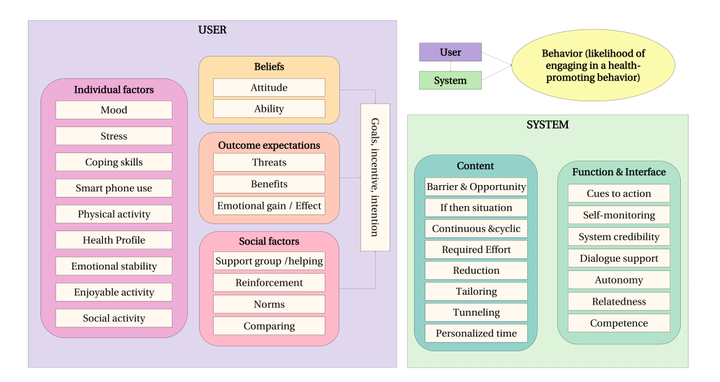Integrating Behavior Change and Persuasive Design Theories into an Example Mobile Health Recommender System

Abstract
Behavior change for health promotion is a complex process that requires a high level of personalization, which health recommender systems, as an emerging area, have been trying to address. Despite the advantages of behavior change theories in explaining individuals’ behavior and standardizing the behavior change program overall, these theoretical models are either overlooked or unreported for the most part in health promotion systems, a small share of them being related to mental well-being. For a health recommender system to personalize interventions, the interventions should be properly designed, and the behavior change aspects should be adequately integrated into the recommendation process. This paper demonstrates an implementation guideline derived from a practical approach in integrating behavior change theories and persuasive design principles into an example mobile-based health recommender system for mental health promotion. This implementation maps a set of relevant theories for designing the health recommender system into a set of requirements using a functional framework. By realizing these requirements, one can assure that the behavior change theories are at the very least considered. This effort serves as a guideline for future implementations and highlights elements that could perhaps be used for other health or recommendation domains and, particularly, user integration purposes.